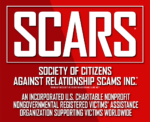SCARS™ SCAM NEWS: Cell Phone Scam
Fifth Defendant Sentenced to Prison for Sophisticated International Cellphone Fraud Scheme
A former West Palm Beach, Florida resident who was extradited to the United States from the Dominican Republic was sentenced to 65 months in prison today for multiple criminal charges in connection with a sophisticated global cell phone fraud scheme that involved compromising cellphone customers’ accounts and “cloning” their phones to make fraudulent international calls.
U.S. Attorney Ariana Fajardo Orshan of the Southern District of Florida, Assistant Attorney General Brian A. Benczkowski of the Justice Department’s Criminal Division, and Special Agent in Charge George L. Piro of the FBI’s Miami Field Office made the announcement.
Braulio De la Cruz Vasquez, 54, pleaded guilty earlier to one count of conspiracy to commit wire fraud, access device fraud, the use, production or possession of modified telecommunications instruments, and the use or possession of hardware or software configured to obtain telecommunications services. De la Cruz also pleaded guilty to one count of wire fraud and one count of aggravated identity theft. He was sentenced by U.S. District Judge Beth Bloom of the Southern District of Florida.
According to the plea agreement, De le Cruz and his co-conspirators participated in a scheme to steal access to existing cell phone accounts, and fraudulently open new cellphone accounts, using the personal information of individuals around the United States.
De la Cruz admitted that his role in the scheme included operating a “call site” from his residence in West Palm Beach. He admitted that he would receive telecommunication identifying information associated with customers’ accounts from his co-conspirators and use that data, as well as other software and hardware, to reprogram cellphones that he controlled. According to the plea agreement, De la Cruz’s co-conspirators would then transmit thousands of international calls over the internet to De la Cruz’s residence, where he would route them through the re-programmed cellphones to Cuba, Jamaica, the Dominican Republic and other countries with high calling rates. The calls were billed to the customers’ compromised accounts.
In addition, De la Cruz admitted that from March 2011 through April 2013, co‑conspirators sent him more than 700 emails containing approximately 2,158 telecommunications identifying numbers associated with cellphone account holders around the United States. He also admitted that, as part of the conspiracy, he received tens of thousands of dollars from at least one Voice over Internet Protocol (VoIP) company for fraudulently routing international calls through his call center.
De la Cruz is a citizen of the Dominican Republic. He was arrested in the Dominican Republic at the request of the United States and then, in August 2018, extradited to Miami, where he is currently in custody.
De la Cruz is the fifth defendant to be sentenced in the case. Previously, defendants Edwin Fana, Farintong Calderon, Jose Santana, and Ramon Batista pleaded guilty to similar charges and have already been sentenced to prison terms ranging from 36 months to 75 months.
The FBI investigated the case, dubbed Operation Toll Free, which is part of the FBI’s ongoing effort to combat large-scale telecommunications fraud. The Criminal Division’s Office of International Affairs handled the extradition in this matter. Assistant U.S. Attorney Jared M. Strauss of the Southern District of Florida and Senior Counsel Matthew A. Lamberti of the Criminal Division’s Computer Crime and Intellectual Property Section are prosecuting the case.
Related court documents and information may be found on the website of the District Court for the Southern District of Florida at www.flsd.uscourts.gov or at http://pacer.flsd.uscourts.gov.
Source: Department of Justice, U.S. Attorney’s Office, Southern District of Florida

SCARS™ Team
A SCARS Division
Miami Florida U.S.A.
TAGS: Cellular Scam, Cell Phone Scam, Cell Network Scam, Florida, Dominican Republic Scammers, Latino Scammers, telecommunications fraud, FBI, U.S. Attorney, Department of Justice, SCARS Scam News Now,
END
Tell us about your experiences with Romance Scammers in our Scams Discussion Forum on Facebook »
FAQ: How Do You Properly Report Scammers?
It is essential that law enforcement knows about scams & scammers, even though there is nothing (in most cases) that they can do.
Always report scams involving money lost or where you received money to:
- Local Police – ask them to take an “informational” police report – say you need it for your insurance
- Your National Police or FBI (www.IC3.gov)
- The Scars Worldwide Reporting Network HERE or on www.Anyscam.com
This helps your government understand the problem, and allows law enforcement to add scammers on watch lists worldwide.
Visit our NEW Main SCARS Facebook page for much more information about scams and online crime: www.facebook.com/SCARS.News.And.Information
To learn more about SCARS visit www.AgainstScams.org
Please be sure to report all scammers HERE or on www.Anyscam.com
All original content is Copyright © 1991 – 2020 SCARS All Rights Reserved Worldwide & Webwide – SCARS/Romance Scams Now & SCARS/Society of Citizens Against Relationship Scams are all trademarks of Society of Citizens Against Relationship Scams Incorporated





Please Leave A Comment - Tell Us What You Think About This!